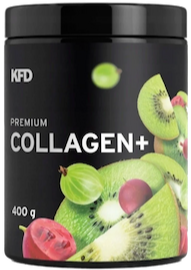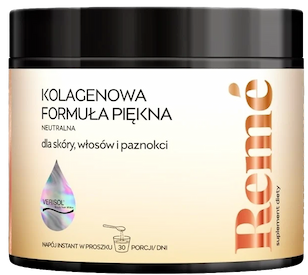Can humans take collagen supplements for horses?
Some people take supplements designed for animals. What consequences might this have?


Learn more about our editorial process
.

Learn more about our editorial process
.

Learn more about our editorial process
.

Learn more about our editorial process
.
Why you can trust us
Articles on Natu.Care are written based on scientific research, data from government websites and other reliable sources. The texts are written in cooperation with doctors, nutritionists and other health and beauty experts. Articles are reviewed before publication and during significant updates.
.Learn more about our editorial process
.Information about advertisements
Content on Natu.Care may contain links to products from the sale of which we may receive a commission. When creating content, we adhere to high editorial standards and take care to be objective about the products discussed. The presence of affiliate links is not dictated by our partners, and we select the products we review ourselves completely independently.
.Learn more about our terms and Conditions
.Collagen for horses is for you if you are a strong stallion or a competing mare. Then you can and even should take this valuable protein. But if you are a human and want to improve joint health or thicken your mane, then choose formulations designed for humans.
With the experts, I will explain to you why collagen supplementation for horses (and other 'animal' supplements) is a bad idea. As a warning - so that you don't fall off your horse.
From this article you will learn:
- Why you should not consume collagen for horses. .
- What side effects such supplementation brings. .
- What the experts think about it. .
- How to choose the best collagen...for humans. .
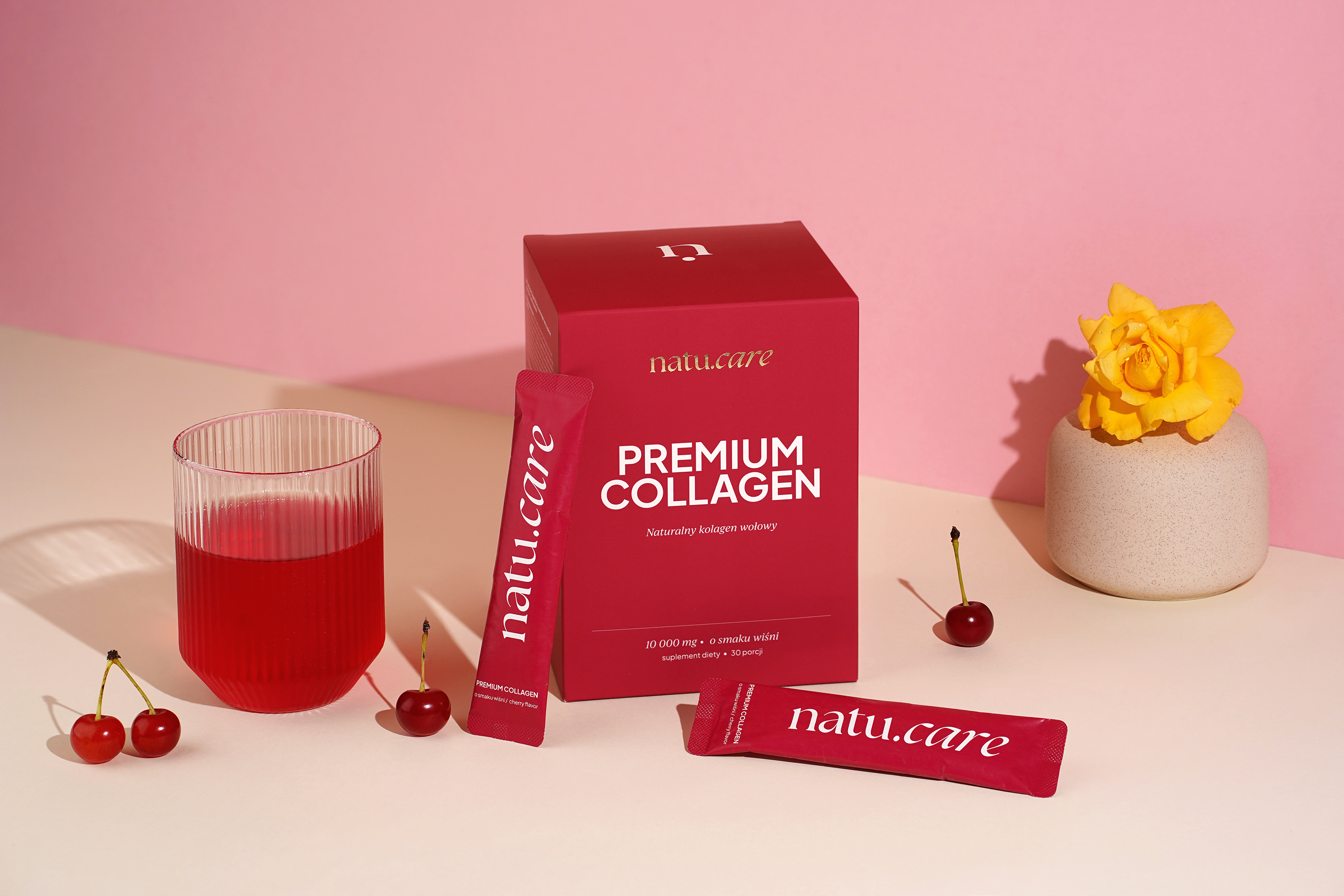
Sprawdź, jak może on zadbać o zdrowie Twoich stawów i urodę! Kolagen Premium (10 000 mg) wiśnia
Natu.Care Kolagen Premium Sport 10000 mg, wiśnia
Natu.Care Kolagen Premium dla zdrowia stawów, skóry, paznokci i włosów. Wołowy kolagen w optymalnej dawce 10 000 mg. Przebadany przez niezależne laboratorium.
Sprawdź cenę
Ten kolagen dobrze się rozpuszcza, super smakuje – jak taki soczek wiśniowy. Moje włosy przestały wypadać, są gęstsze i zdrowsze a cera promienna.@Dominika P.
See also:
.
- The best collagen on the market .
- Best collagen for stretch marks
- Best collagen for scars
- Best collagen for nails
- Best collagen for wrinkles
- Best collagen for skin
- Best collagen for joints
- Best collagen for hair
- Best collagen for cellulite
- Best collagen for acne
Pet supplements
.
First of all, let's clarify one point - 'animal supplements' is an incorrect phrase. A doctor of health sciences explains:
There is no concept of "animal supplements". - there are feeds (animal foods) enriched with the relevant ingredients. Animal food (including enriched animal food) is supervised by the State Veterinary Inspection..
 .
.
Witold Tomaszewskidoctor of medical sciences
..
For the purposes of this article I am using this colloquial phrase, but remember that a dietary supplement is intended for humans to supplement various nutrientsand. The available human formulations go through a different entry procedure and contain safe daily portions of active ingredients.
Why do people take horse collagen?
.
To answer this question, I spoke to horse owners, health experts, I even signed up to a group of horse lovers on social media (the adorable foal in the avatar got the job done) and a forum on the subject of supplementation. I asked around and dabbled.
Why do some people take collagen for horses? The reasons are pragmatic, dictated by ignorance or... peasant reasoning. Typically, people take horse collagen because it is:
- cheaper than collagen supplement for humans, .
- more efficient, .
- plausibly better quality (let me clarify right away: it is not), .
- just look at these horses (forum quote). .
People are looking for alternatives when it comes to dietary supplements. Encouraged by the price, the large packaging, the "fashion" and the easy availability on the internet of such a preparation, they buy it, thinking that it is, the same as in the pharmacy. And since it's good for animals, it's certainly good for them too..
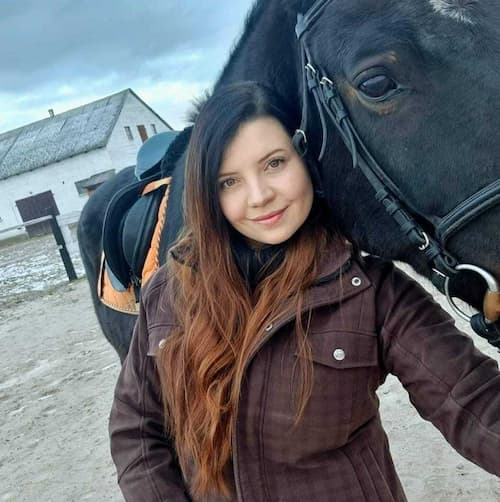
Anna Włodarczyk veterinary surgeon
"I know people who think that preparations for horses, especially racing or show horses, are of better quality because these horses need to win, to be fit, so you have to give them something better," - a friend, who privately loves horse riding, tells me.
"But the horse snacks they don't want to eat anymore". - she adds with a smile.
Users through horse supplementation mainly want to improve joint health and the condition of skin, hair and nails.
Supplements are healthy, but only in the right amounts and when they are needed. I always advise my patients to consult their doctor if they want to start supplementation..
 .
.
Kacper Nihalani doctor
It seems that people taking collagen for horses choose these formulations mainly because of price and efficiency supplementation. A packet of collagen for humans lasts an average of 20-30 days, while horse collagen portioned at a 'human conversion rate' can last for up to several months.
Some people choose to use horse collagen because they've snickered at the #conspiracy and supposedly these formulations are better quality. But it's not that obvious.
Just as there are supplements and 'supplements' for humans, the same is true for animal preparations. There are reliable manufacturers, as well as those with, for example, a poor source of raw material or low bioavailability of active ingredients.
 .
.
Witold Tomaszewskidoctor of medical sciences
.Why do horses need collagen?
While we dream of beautiful skin and healthy joints, horses take in collagen so that they can do their "job" and be on the move for as long as possible - these animals need activity and suffer when they don't have it.
Horses need collagen so that they can do their "job" and be on the move for as long as possible.
Horses are given collagen:
.
- in case of injury, .
- after operations, .
- at times of increased activity (e.g. competitions), .
- in old age, .
- sometimes during a mare's pregnancy, .
- in the intensive growth phase of the foal, .
Yes - humans also get injured, age or are athletes. But you will read below...
Why horse collagen for humans is a bad idea
.
Horse collagen is prepared for the horse, that is, it takes into account the horse's species, body weight, metabolism, needs. Humans should not use collagen for horses because we are different from these animalsand:
- Nutritional requirements. Horses and humans have different nutritional requirements in terms of nutrients and their amounts in the diet. We also have different metabolic pathways.
- Dosages. The active ingredients in horse supplements are dosed differently than in human products. .
- Ingredient tolerance. Some products may contain ingredients that are harmful to humans, especially in excessive amounts. .
- Potential allergies. Collagens and collagen blends for horses may contain ingredients that can cause allergies in humans. .
Note also that animal formulations are not regulated at the same level as supplements for humans. This may mean that the final product does not meet the same standard of purity and quality.
Also, some of the ingredients in equine preparations may interact interact with human medicines.
I once had a patient who bought a horse formula because a pseudo-trainer said high doses were best because it was better recovery, faster absorption, lower price..
 .
.
Julia SkrajdaDietitian
."An excess of vitamins or other ingredients is much more dangerous than a deficiency and can lead to organ failure. You have to be careful - especially with animal supplements, as they are not regulated and in most cases the manufacturer is not legally responsible if something happens to us," adds the nutritionist.
Horse doses
.
Horse formulations are formulated for use by animals much larger than humans, so the doses of active ingredients are much higher. This means that the risk of overdose and associated side effects is much higher.
The horse is a sensitive animal and usually needs much lower doses of medication than humans. Many products that are absorbed by animals can be harmful to humans - it is a matter of metabolic pathways..
 .
.
Witold Tomaszewskidoctor of medical sciences
Even careful recalculation of doses 'per human' is not sensible, because the product may contain active ingredients to which the human body will react badly. These could be, for example, bacterial strains that are not intended for humans and may lead to stomach problems or their effect on humans is unknownand.
Well... do people always convert portions "from horse to ours"? Few people know by heart Nutrition Standards for the Polish population experts from the Institute of Food and Nutrition and know how much vitamins or minerals we should consume.
In horse preparations, doses are often not calculated per 1 kg of body weight, but, for example, per 100 kg of body weight. Consequently, the doses are high and often exceed the daily requirement for humans for the substance in question..
 .
.
Anna Włodarczyk veterinary surgeon
.
Symptoms of excess collagen
.
Collagen intake for horses can lead to an overdose of collagen. Collagen excess is very rare, but it should not be underestimated. Symptoms of too much collagen in the body includeand:
- gravity, .
- congestion, .
- constipation, .
- heart palpitations, .
- pain in the joints,
- pain in the joints,
- healing.
- thickening and hardening of the skin,
- pnea.
- tingling or numbness in fingers and toes, .
- pain in the chest, .
Note that there may also be other active ingredients in a dietary supplement, excess of which is 'easier' to achieve and more harmful than collagen itself.
For example, an excess vitamin C can cause diarrhoea, nausea and, in the long term, lead to kidney stones, heart disease or problems with liver functionand.
.
High doses of glucosamine, on the other hand, in addition to gastric revolutions can lead to the development of glaucoma in someand. In addition, this amino sugar can have a hypoglycaemic effect in people with type 2 diabetes, so those with this condition or taking diabetes medication should be particularly cautious .
.
Effects of excess collagen
.
Excess collagen from supplementation can lead to gastrointestinal distress and discomfort. Daily nausea, vomiting, abdominal pain, bloatingand may occur. In addition, by consuming animal supplements, you expose yourself to an excess of other active ingredients, which can lead to serious health consequences.
Other animal supplements
.
In addition to buying collagen for horses for 'personal use', other preparations that humans should not consume are also popular.
Geloren
.
The Geloren company offers a variety of products for pets, and one of the more popular ones are joint gels. They contain chondroitin sulphate, hyaluronic acid and porcine gelatine. Despite the fact that the gelatins are supposedly...tasty, they are not safe for human consumption due to the lack of proper testing that is done in the production of human supplements.
Horseshoe Vitamins D3 + K2
.
Podkowa vitamins are a perfect example of a 'horse dose'. The formula contains as much as 10,000 IU vitamin D3 (where dose for an adult is 2,000-4,000 IU) and 250 µg vitamin K2 (for an adult is 60 µg). More is not better - an excess of vitamins can sometimes be more dangerous to life and health than a deficiency.
In 2022, there was a high-profile story about a woman who was consuming vitamin D3 for horses. She exceeded her daily intake by several times, which caused her to develop hypercalcaemia, a life-threatening and health-threatening condition of elevated calcium concentrations.
The following is an example of this.
Sisarol Complex Horse
.
A two-litre canister of a blend of ingredients for joints for horses. The manufacturer strictly indicates that this is a preparation exclusively for horses and ponies that have damaged joints or suffer from osteoarthritis. The formulation is used to mix a carefully deducted amount into the feed - as you can see, even animals need to keep an eye on portioning to avoid harming themselves.
See also:
Horse health - or is it for sure?
.
One of the popular conisms is the saying that someone has horse health. I used to stand next to a Shire horse - it's an impressive animal, so I'm not surprised by this association.
However, despite appearances, horses are delicate animals, prone to many ailments and diseases. A veterinarian explains:
Horses are a sensitive species and if we do not provide them with the right conditions, they easily contract various diseases. They have a delicate digestive tract, so abrupt changes in diet or poor diet composition can cause colic, ulcers..
 .
.
Anna Włodarczyk veterinary surgeon
"Their limbs are also easily injured, whether with improper training, while out in the pasture or in the bosky. Horses are also very sensitive ... to draughts," adds the veterinarian.
From the "horse preparations", it is the repellents, or repellents that repel animal organisms, that can be used fairly safely by humans. They are produced on a vegetable basis, taking into account the high sensitivity of the horse's skin..
 .
.
Witold Tomaszewskidoctor of medical sciences
.See also:
.
- Which collagen to choose
- What collagen sheet to choose
- What liquid collagen to choose
- How to choose collagen to drink
- How to choose collagen powder
- How to choose collagen in sachets
- How to choose collagen in tablets
- How to choose collagen in capsules
- How long to use collagen?
- When to drink collagen? .
Horse collagen for humans - expert opinions
.
Animals and humans differ in terms of physiology. Horses have different dietary requirements from humans and the chemical composition and concentration of supplemented substances may not be suitable for humans..
 .
.
Kacper Nihalani doctor
Animal products, as the name suggests, are intended for animals. They are not tested for effects on human health. Many substances in such preparations are metabolised differently in different species. The ingestion of animal preparations, even in a "horse dose", can result in various health problems..
 .
.
Anna Włodarczyk veterinary surgeon
Collagen for horses is not for humans and that is reason enough not to take it. Many products that are assimilated by animals can simply be harmful to humans - it's a matter of metabolic pathways.
 .
.
Witold Tomaszewskidoctor of medical sciences
In animal preparations the quality, microbiological or chemical purity requirements are met according to the requirements for animals, not humans. Quality standards are quite different, what does not harm a horse, for example, may harm a human..
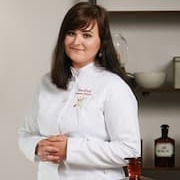 .
.
Ilona Krzak Master of Pharmacy
Do not consume horse preparations. This is an issue that needs to be publicised, people need to be reminded and made aware not to do it. And to call reality frankly - this is absurd. It could end badly for our health..
 .
.
Julia SkrajdaDietitian
..
The best collagen... for people
.
If you are looking for the strongest collagen for yourself, buy it from proven manufacturers offering collagen that:
- is well absorbable (e.g. fish collagen), .
- has an effective daily dose (minimum 2,500 mg), .
- contains useful and safe additives (e.g. vitamin C), .
- is certified for raw material quality and laboratory testing. .
Also, you can count on ... better taste. Manufacturers are able to balance natural sweeteners with achieving delicious, even dessert-like flavours in their products. Horses don't have it so good!
Underneath you will find recommended collagens whose compositions have been analysed magister of pharmacy Ilona Krzak.
Natu.Care Collagen Premium 5000 mg, mango-maracuja

- Collagen content: 5000 mg marine collagen hydrolysate
- .
- Additional active ingredients: vitamin C, low molecular weight hyaluronic acid (and L-theanine and coenzyme Q10 in cocoa flavoured collagen or vitamin A and vitamin E in mango–passion fruit flavoured collagen)
- .
- Form: powder sachets
- .
- Dose: 1 sachet per day
- .
- Sufficient for: 30 days
- .
Product description
Fish collagen from the Natu.Care brand in a dose of 5000 mg. The formula contains a sufficient portion of the active substance to positively affect your joints, musculoskeletal system and immunity.
Take care of your tendons, joint cartilage, ligaments, muscles and even bones by supplying them with the building blocks to function properly. Move without bólu and provide the necessary support for any physical activity.
And as a „gratis” to regular supplementation, you will also receive firm skinóhand, healthy and shiny hair and strong nails.
Natu.Care Premium Collagen is available in two flavours – Cacao Bloom and Rise&Shine. Both formulas are based on the following active ingredients: marine collagen hydrolysate, wild roseóbud extract and hyaluronic acid.
Additionally, Cacao Bloom contains natural L-theanine, coenzyme Q10 and defatted Dutch cacao. Rise&Shine instead contains vitamin E and vitamin A.
These are the best collagens in the world.
These best fish collagens on the market also rós taste – Cacao Bloom is a treat for chocolate lovers. Rise&Shine will appeal to those whoóenjoy the refreshing taste of mangoófruit and passion fruit.
Pros and cons
Fish collagen from the Natu.Care brand in a dose of 5000 mg. The formula contains a sufficient portion of the active substance to positively affect your joints, musculoskeletal system and immunity.
Take care of your tendons, joint cartilage, ligaments, muscles and even bones by supplying them with the building blocks to function properly. Move without bólu and provide the necessary support for any physical activity.
And as a „gratis” to regular supplementation, you will also receive firm skinóhand, healthy and shiny hair and strong nails.
Natu.Care Premium Collagen is available in two flavours – Cacao Bloom and Rise&Shine. Both formulas are based on the following active ingredients: marine collagen hydrolysate, wild roseóbud extract and hyaluronic acid.
Additionally, Cacao Bloom contains natural L-theanine, coenzyme Q10 and defatted Dutch cacao. Rise&Shine instead contains vitamin E and vitamin A.
These are the best collagens in the world.
These best fish collagens on the market also rós taste – Cacao Bloom is a treat for chocolate lovers. Rise&Shine will appeal to those whoóenjoy the refreshing taste of mangoófruit and passion fruit.
Additional information
Fish collagen from the Natu.Care brand in a dose of 5000 mg. The formula contains a sufficient portion of the active substance to positively affect your joints, musculoskeletal system and immunity.
Take care of your tendons, joint cartilage, ligaments, muscles and even bones by supplying them with the building blocks to function properly. Move without bólu and provide the necessary support for any physical activity.
And as a „gratis” to regular supplementation, you will also receive firm skinóhand, healthy and shiny hair and strong nails.
Natu.Care Premium Collagen is available in two flavours – Cacao Bloom and Rise&Shine. Both formulas are based on the following active ingredients: marine collagen hydrolysate, wild roseóbud extract and hyaluronic acid.
Additionally, Cacao Bloom contains natural L-theanine, coenzyme Q10 and defatted Dutch cacao. Rise&Shine instead contains vitamin E and vitamin A.
These are the best collagens in the world.
These best fish collagens on the market also rós taste – Cacao Bloom is a treat for chocolate lovers. Rise&Shine will appeal to those whoóenjoy the refreshing taste of mangoófruit and passion fruit.
User review
Fish collagen from the Natu.Care brand in a dose of 5000 mg. The formula contains a sufficient portion of the active substance to positively affect your joints, musculoskeletal system and immunity.
Take care of your tendons, joint cartilage, ligaments, muscles and even bones by supplying them with the building blocks to function properly. Move without bólu and provide the necessary support for any physical activity.
And as a „gratis” to regular supplementation, you will also receive firm skinóhand, healthy and shiny hair and strong nails.
Natu.Care Premium Collagen is available in two flavours – Cacao Bloom and Rise&Shine. Both formulas are based on the following active ingredients: marine collagen hydrolysate, wild roseóbud extract and hyaluronic acid.
Additionally, Cacao Bloom contains natural L-theanine, coenzyme Q10 and defatted Dutch cacao. Rise&Shine instead contains vitamin E and vitamin A.
These are the best collagens in the world.
These best fish collagens on the market also rós taste – Cacao Bloom is a treat for chocolate lovers. Rise&Shine will appeal to those whoóenjoy the refreshing taste of mangoófruit and passion fruit.
Natu.Care Collagen Premium 10000 mg, cherry

- Collagen content: 10,000 mg of hydrolyzed bovine collagen
- Additional active ingredients: vitamin C, low molecular weight hyaluronic acid, glucosamine, chondroitin, extract of Indian frankincense resin (boswellia serrata)
- Form: powder sachets for drinking
- Serving: 1 sachet per day
- Lasts for: 30 days
Product description
One of the strongest collagens on the market, providing as much as 10,000 mg per daily serving. This product can effectively support the condition of joints, skin, hair, and nails.
With this supplement, you will support your skeletal and joint system as well as your beauty, helping you visually halt the aging process and feel rejuvenated!
Pros and cons
Pros:
- The daily portion of collagen is very large – as much as 10,000 mg.
- Proven collagen formula – COLLinstant, whose effectiveness has been confirmed in clinical studies.
- Effective dose of hyaluronic acid, which additionally moisturizes the skin and positively affects joint health.
- Vitamin C supports the body's natural collagen production.
- Glucosamine is a fundamental building block of compounds found in joint cartilage and a component of collagen that gives elasticity to connective tissue in tendons.
- Chondroitin is a natural component found in the human body, mainly in cartilage. This large molecule (mucopolysaccharide) has the ability to absorb water, which helps maintain the elasticity and resilience of cartilage.
- Frankincense resin extract supports blood circulation and joint mobility and reduces their stiffness. It may help alleviate inflammatory conditions.
- The composition has been tested by the independent and accredited J.S. Hamilton laboratory.
Cons:
- None.
Additional information
Users praise Natu.Care Collagen Premium for the easy dissolving of the powder.
ALLDEYNN Collarose Fish
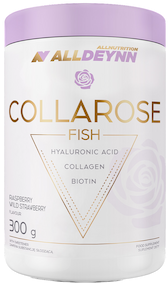
- Collagen content: 5000 mg hydrolysate fish collagen VERISOL F® .
- Additional active ingredients: vitamin C, hyaluronic acid, biotin
- Form: powder to dissolve in water .
- Dose: one scoop (6 g) of powder daily .
- Sufficient for: 50 days .
Product description
Atlantic cod collagen VERISOL F® contained in the formula are easily absorbed collagen peptides of fish origin. Regular supplementation can firm your skinóhand and slow down the ageing process. Your nails will become stronger and stop breaking. The addition of biotin will improve the condition of your hairów. The collagen portion is high enough to also have a good effect on your joints, muscles and bones.
Pros and cons
Atlantic cod collagen VERISOL F® contained in the formula are easily absorbed collagen peptides of fish origin. Regular supplementation can firm your skinóhand and slow down the ageing process. Your nails will become stronger and stop breaking. The addition of biotin will improve the condition of your hairów. The collagen portion is high enough to also have a good effect on your joints, muscles and bones.
Additional information
Atlantic cod collagen VERISOL F® contained in the formula are easily absorbed collagen peptides of fish origin. Regular supplementation can firm your skinóhand and slow down the ageing process. Your nails will become stronger and stop breaking. The addition of biotin will improve the condition of your hairów. The collagen portion is high enough to also have a good effect on your joints, muscles and bones.
Expert and user opinion
Atlantic cod collagen VERISOL F® contained in the formula are easily absorbed collagen peptides of fish origin. Regular supplementation can firm your skinóhand and slow down the ageing process. Your nails will become stronger and stop breaking. The addition of biotin will improve the condition of your hairów. The collagen portion is high enough to also have a good effect on your joints, muscles and bones.
DuoLife Collagen fish collagen 2500 mg
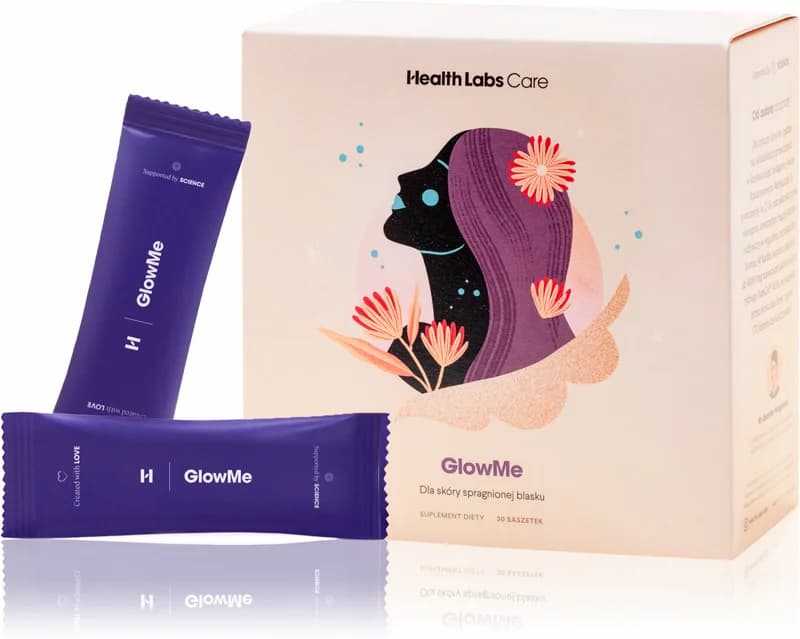
- Collagen content: 2500 mg collagen
- Additional active ingredients: vitamin C, silicon, glucosamine, hyaluronic acid, nettle and bamboo extracts
- Form: liquid to drink .
- Dose:25 ml .
- Sufficient for: 30 days .
Product description
100% natural collagen liquid without unnecessary ingredientsós. The composition of ingredientsós improves the appearance and condition of skinóry, hairów, nails. DuoLife is a good choiceór if you notice the first signs of skinóry ageing or want to stop this process. A tasty liquid, convenient to use.
Pros and cons
100% natural collagen liquid without unnecessary ingredientsós. The composition of ingredientsós improves the appearance and condition of skinóry, hairów, nails. DuoLife is a good choiceór if you notice the first signs of skinóry ageing or want to stop this process. A tasty liquid, convenient to use.
Additional information
100% natural collagen liquid without unnecessary ingredientsós. The composition of ingredientsós improves the appearance and condition of skinóry, hairów, nails. DuoLife is a good choiceór if you notice the first signs of skinóry ageing or want to stop this process. A tasty liquid, convenient to use.
User review
100% natural collagen liquid without unnecessary ingredientsós. The composition of ingredientsós improves the appearance and condition of skinóry, hairów, nails. DuoLife is a good choiceór if you notice the first signs of skinóry ageing or want to stop this process. A tasty liquid, convenient to use.
Pharmovit liquid collagen 10000 mg
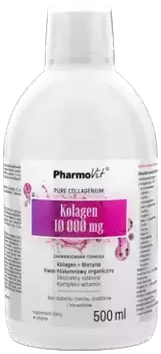
- Collagen content: 10000 mg hydrolysed bovine collagen types I and III .
- Additional active ingredients: hyaluronic acid, natural plant extracts, vitamin C, B vitamins, zinc, vitamin D
- Form: vials .
- Dose: 25 ml .
- Sufficient for: 20 days .
Product description
A solid daily dose of collagen for jointómuscle and bone health and beauty. The duo of collagen and vitamin C has a positive effect on each other, so that „the protein of youth” is better absorbed and more efficiently produced in the body.
Pros and cons
A solid daily dose of collagen for jointómuscle and bone health and beauty. The duo of collagen and vitamin C has a positive effect on each other, so that „the protein of youth” is better absorbed and more efficiently produced in the body.
Additional information
A solid daily dose of collagen for jointómuscle and bone health and beauty. The duo of collagen and vitamin C has a positive effect on each other, so that „the protein of youth” is better absorbed and more efficiently produced in the body.
KFD Premium Collagen+
Product description
High dose of collagen and a real bomb of vitamins C and D and organic sulphur. With this preparation the effects will come immediately. You will improve the firmness of your skin and reduce wrinkles. Your hair and nails will be strong and shiny.
A generous dose of collagen will improve the mobility of your jointsós, benefit your bone system and muscles. Do you do sports and need a product thatós able to keep up with your needs? This product will do the trick.
Pros and cons
High dose of collagen and a real bomb of vitamins C and D and organic sulphur. With this preparation the effects will come immediately. You will improve the firmness of your skin and reduce wrinkles. Your hair and nails will be strong and shiny.
A generous dose of collagen will improve the mobility of your jointsós, benefit your bone system and muscles. Do you do sports and need a product thatós able to keep up with your needs? This product will do the trick.
Additional information
High dose of collagen and a real bomb of vitamins C and D and organic sulphur. With this preparation the effects will come immediately. You will improve the firmness of your skin and reduce wrinkles. Your hair and nails will be strong and shiny.
A generous dose of collagen will improve the mobility of your jointsós, benefit your bone system and muscles. Do you do sports and need a product thatós able to keep up with your needs? This product will do the trick.
Expert opinion
High dose of collagen and a real bomb of vitamins C and D and organic sulphur. With this preparation the effects will come immediately. You will improve the firmness of your skin and reduce wrinkles. Your hair and nails will be strong and shiny.
A generous dose of collagen will improve the mobility of your jointsós, benefit your bone system and muscles. Do you do sports and need a product thatós able to keep up with your needs? This product will do the trick.
Product description
The dietary supplement from Remé contains beef collagen in a patented formula and vitamin C, whichóra aids its absorption. The formula comes in three flavours: neutral, orange-maracuja and strawberry-pomegranate. The formula can effectively support and improve the condition of the skinóry, hairóry and nails.
Pros and cons
The dietary supplement from Remé contains beef collagen in a patented formula and vitamin C, whichóra aids its absorption. The formula comes in three flavours: neutral, orange-maracuja and strawberry-pomegranate. The formula can effectively support and improve the condition of the skinóry, hairóry and nails.
Additional information
The dietary supplement from Remé contains beef collagen in a patented formula and vitamin C, whichóra aids its absorption. The formula comes in three flavours: neutral, orange-maracuja and strawberry-pomegranate. The formula can effectively support and improve the condition of the skinóry, hairóry and nails.
The dietary supplement from Remé contains beef collagen in a patented formula and vitamin C, whichóra aids its absorption. The formula comes in three flavours: neutral, orange-maracuja and strawberry-pomegranate. The formula can effectively support and improve the condition of the skinóry, hairóry and nails.
{ product: 1eiyihgASLfslgpBv80Tk1 }}
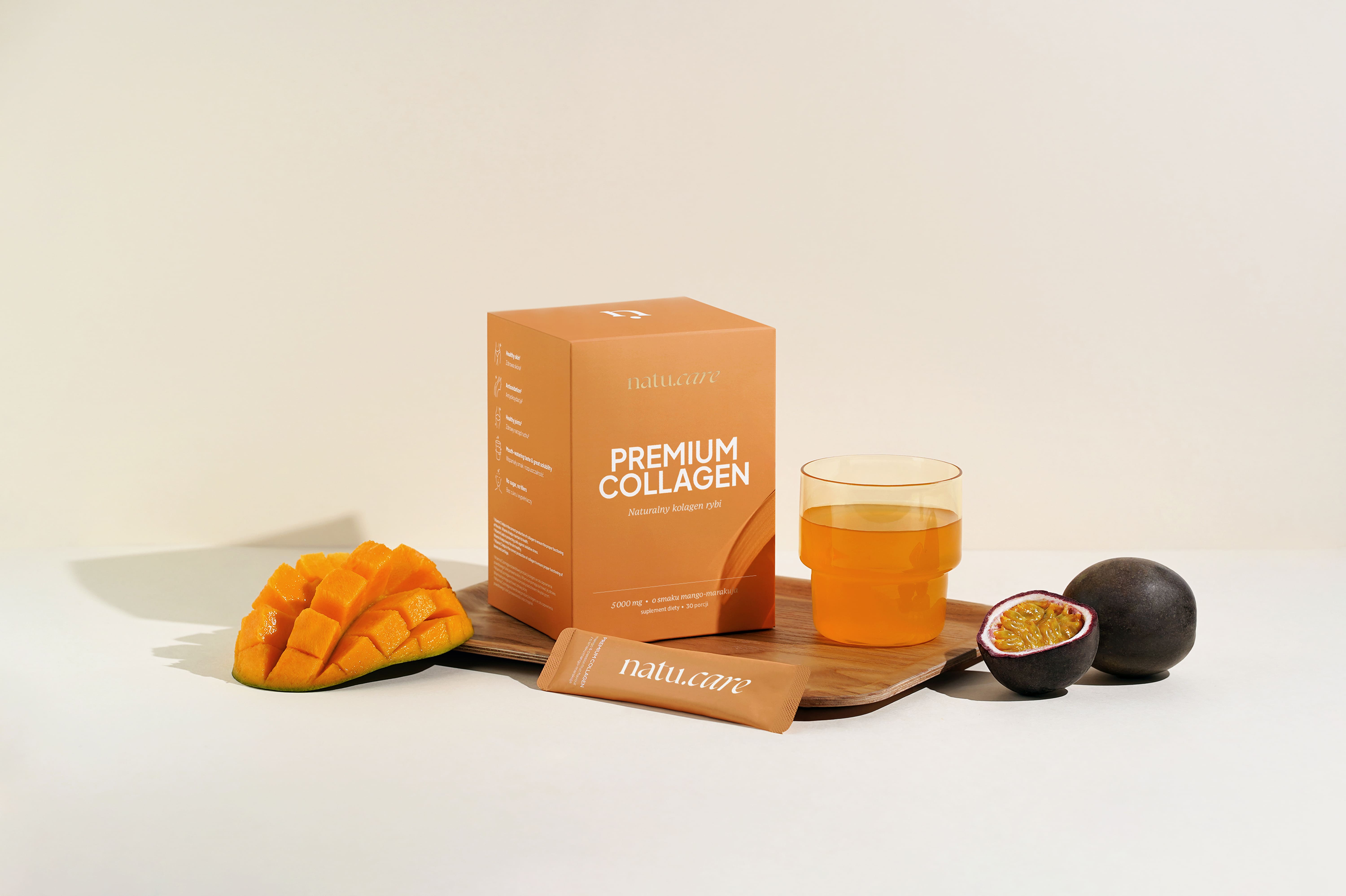
Sprawdź, za co pokochały go tysiące klientek Kolagen Premium 5000 mg, mango-marakuja
Natu.Care Kolagen Premium 5000 mg, mango-marakuja
Natu.Care Kolagen Premium dla zdrowia stawów, skóry, paznokci i włosów. Najlepsza przyswajalność. Optymalna dawka 5 000 lub 10 000 mg. Przebadany przez niezależne laboratorium.
Zobacz więcej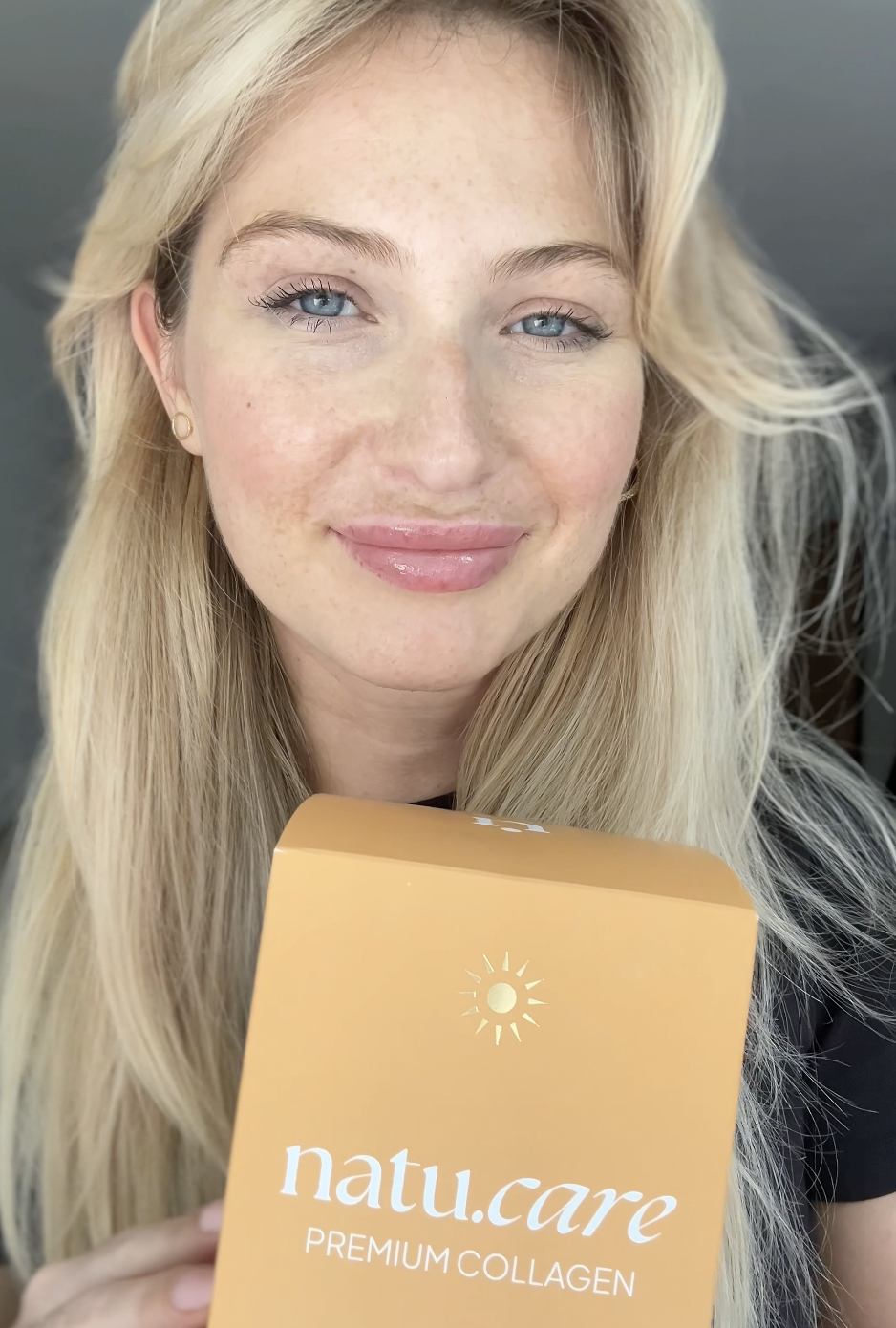
Wybrałam kolagen Natu.Care, ponieważ miał super opinie – a to było dla mnie bardzo ważne! Odkąd go stosuję, moja skóra znacznie się poprawiła i jest nawilżona, a na głowie pojawiły się nowe "baby hair".@Kasia S.
See also:
.
- Collagen - doctors' opinions .
- Naticol Collagen
- Collagen for athletes
- Collagen for runners
- Collagen for joints
- Collagen for tendons
- Collagen for bones
- Which collagen to choose
Summary
.
- Consumption of equine collagen and other animal preparations by humans is dangerous and can negatively affect health.
- Collagen for horses often contains higher doses of the active ingredient which, if taken unwisely, can lead to overdose. .
- In the formulations of collagen for horses, there are also other active substances (vitamins, probiotics), which may be harmful to humans in excess or their effects on the human body are unknown.
- The following is an example of this.
- Preparations for animals have a different production procedure and quality standards than dietary supplements for humans. .
- Human dietary supplements can effectively and safely supplement collagen and other components in the body. You are also assured of the quality of the preparation. .
- Recommended high-quality collagen is Natu.Care Collagen Premium 5000 and 10 000 mg .
FAQ
.What is the best collagen?
.The best collagen is hydrolysed type I collagen of marine origin. It is characterised by its high bioavailability because structurally fish collagen is similar to human collagen. This makes it quick and effective at replenishing collagen deficiency in the body, and you will see effects. Recommended fish collagens (a.k.a. marine, norwegian) are Natu.Care collagens - Rise&Shine, Cacao Bloom.
.This collagen has no fishy aftertaste, dissolves well, and can be added to your favorite sweet meals (cocktails, deserts, smoothies, omlets) as well as flavours (bowls, falafels, sauces for fries, quesadillas).
What is the best collagen for joints?
.The best collagen for joints should contain a high portion of collagen (preferably a minimum of 5,000 mg), additional active ingredients that support its natural production (e.g. vitamin C) and useful ingredients for joints (e.g. hyaluronic acid, organic sulphur). Collagen for joints is a useful supplement for people after the age of 50, but also athletes -especially for runners.
.Recommended collagens for joints include: Rise&Shine, Cacao Bloom, Colladrop Flex, Primabiotic beef collagen and Solve Labs Collagen Peptides.
Is NatiCol collagen for horses good for humans?
.No, the use of collagen for horses with the formula NatiCol is not safe and can cause various side effects in humans. If you want to use NatiCol, choose human products that have the appropriate laboratory testing and formulation tailored to human needs. Collagen is safe at any age, whether you are 25 years old or 60 years old.
Can equine vitamins be taken by humans?
.No, people should not take horse vitamins or other preparations dedicated to animals. This is dangerous and can lead to an excess of active ingredients in the body and deterioration of health. Horses have different needs, metabolism and preparations for them are formulated differently than for humans.
What is collagen for horses for?
.Collagen for horses supports the strength and elasticity of an animal's connective tissue, tendons and joints, promotes regeneration, frames the appearance of the skin, coat and hoof horn.
Is Geloren for humans?
.No, Geloren is not for humans and should not be used by humans due to the high risk of an overdose of active ingredients that can lead to deterioration of health.
.
Sources
.See all
.Biochemistry, Collagen Synthesis-StatPearls-NCBI Bookshelf. (n.d.). Retrieved August 28, 2023, from https://www.ncbi.nlm.nih.gov/books/NBK507709/
Choi, F. D., Sung, C. T., Juhasz, M. L. W., & Mesinkovsk, N. A. (2019). Oral Collagen Supplementation: A Systematic Review of Dermatological Applications. Journal of Drugs in Dermatology: JDD, 18(1), 9-16.
.Compounds, I. of M. (US) P. on D. A. and R. (2000). Vitamin C. In Dietary Reference Intakes for Vitamin C, Vitamin E, Selenium, and Carotenoids. National Academies Press (US). https://www.ncbi.nlm.nih.gov/books/NBK225480/
Effects of Oral Collagen for Skin Anti-Aging: A Systematic Review and Meta-Analysis-PMC. (n.d.). Retrieved August 28, 2023, from https://www.ncbi.nlm.nih.gov/pmc/articles/PMC10180699/
Finno, C. J. (2020). Veterinary Pet Supplements and Nutraceuticals. Nutrition today, 55(2), 97-101. https://doi.org/10.1097/nt.0000000000000399
Jarosza, M., Rychlik, E., Stoś, K., & Charzewska, J. (n.d.). Nutrition standards for the Polish population and their application.
.Ma, H., Li, X., Zhou, T., Sun, D., Liang, Z., Li, Y., Heianza, Y., & Qi, L. (2020). Glucosamine Use, Inflammation, and Genetic Susceptibility, and Incidence of Type 2 Diabetes: A Prospective Study in UK Biobank. Diabetes Care, 43(4), 719-725. https://doi.org/10.2337/dc19-1836
McMonnies, C. W. (2017). Glaucoma history and risk factors. Journal of Optometry, 10(2), 71-78. https://doi.org/10.1016/j.optom.2016.02.003
Ragno, V. M., Zello, G. A., Klein, C. D., & Montgomery, J. B. (2019). From Table to Stable: A Comparative Review of Selected Aspects of Human and Equine Metabolic Syndrome. Journal of Equine Veterinary Science, 79, 131-138. https://doi.org/10.1016/j.jevs.2019.06.003
Sestili, M. A. (1983). Possible adverse health effects of vitamin C and ascorbic acid. Seminars in Oncology, 10(3), 299-304.
Traub-Dargatz, J. L., Salman, M. D., & Voss, J. L. (1991). Medical problems of adult horses, as ranked by equine practitioners. Journal of the American Veterinary Medical Association, 198(10), 1745-1747.
.
Editorials
Meet the team


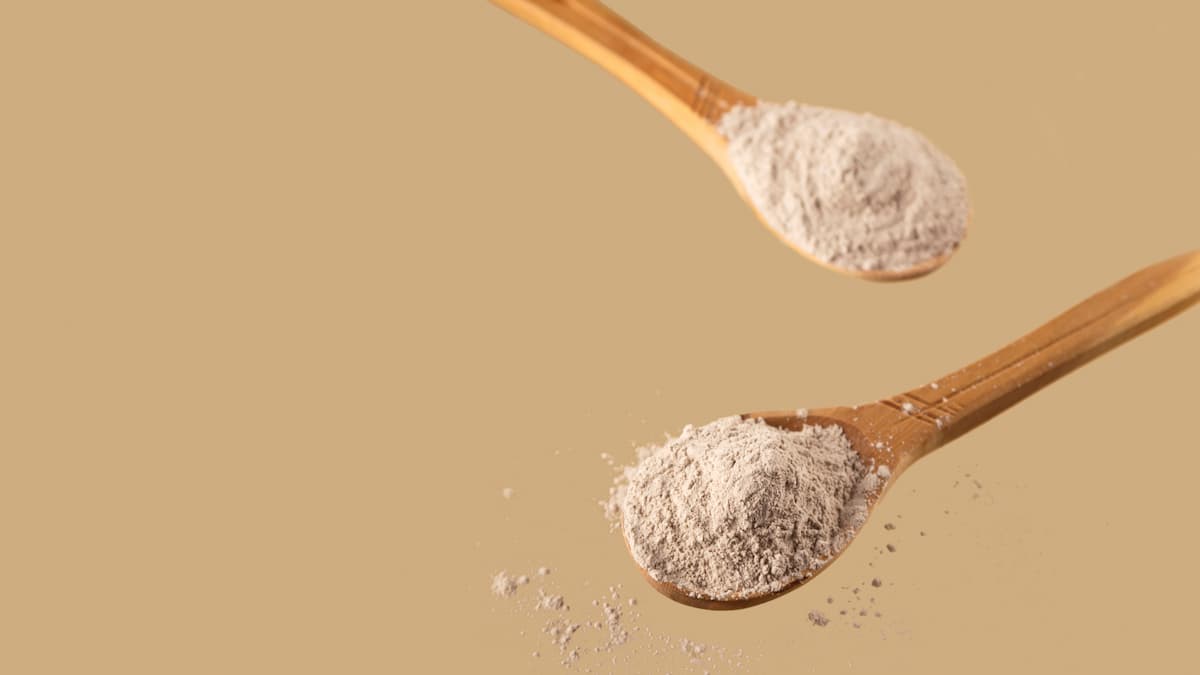
Everything you want to know about COLLinstant collagen.

Collibre collagen is an interesting supplement in shot form.
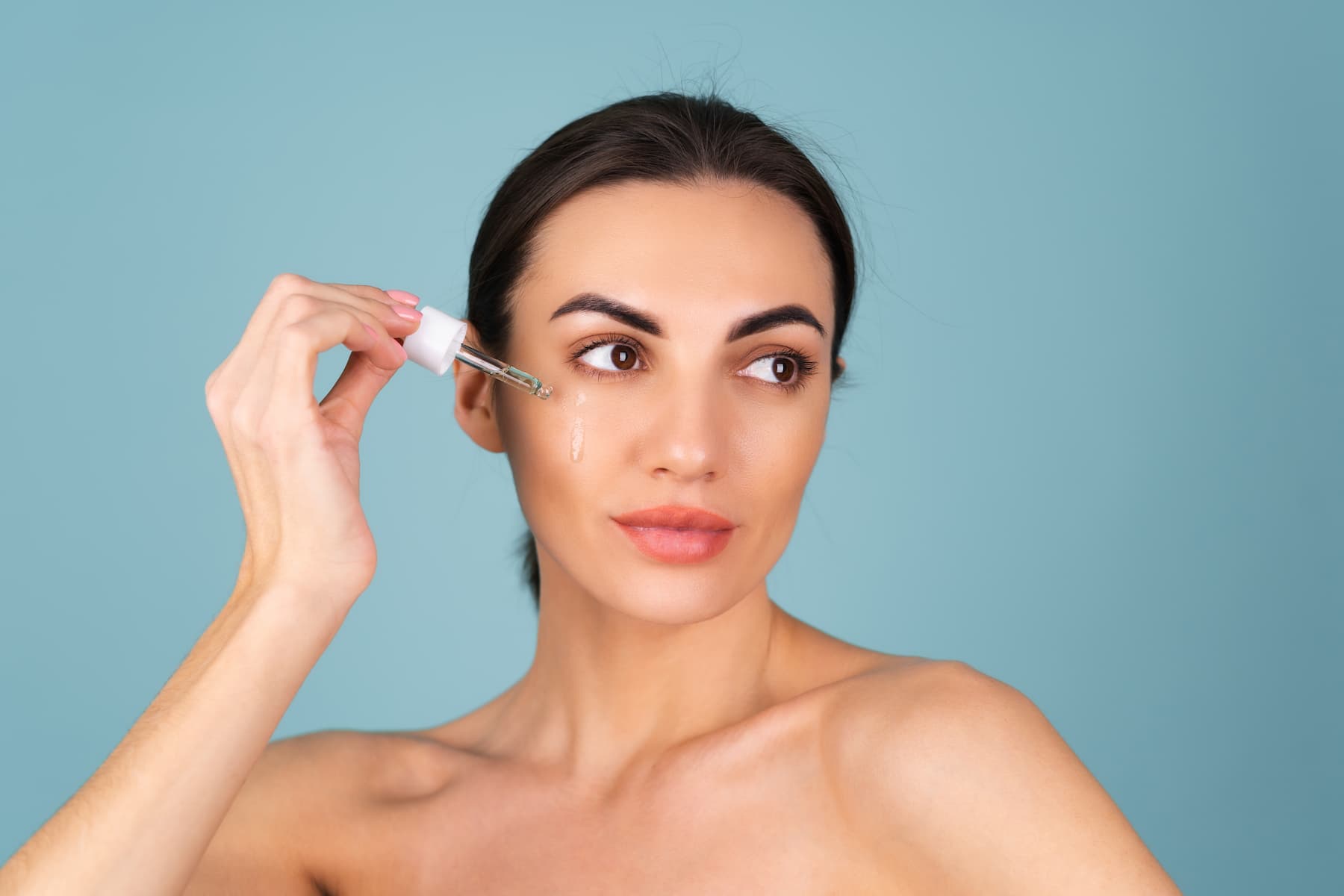
Solgar collagen with hyaluronic acid is a dietary supplement that supports skin and joint health.
